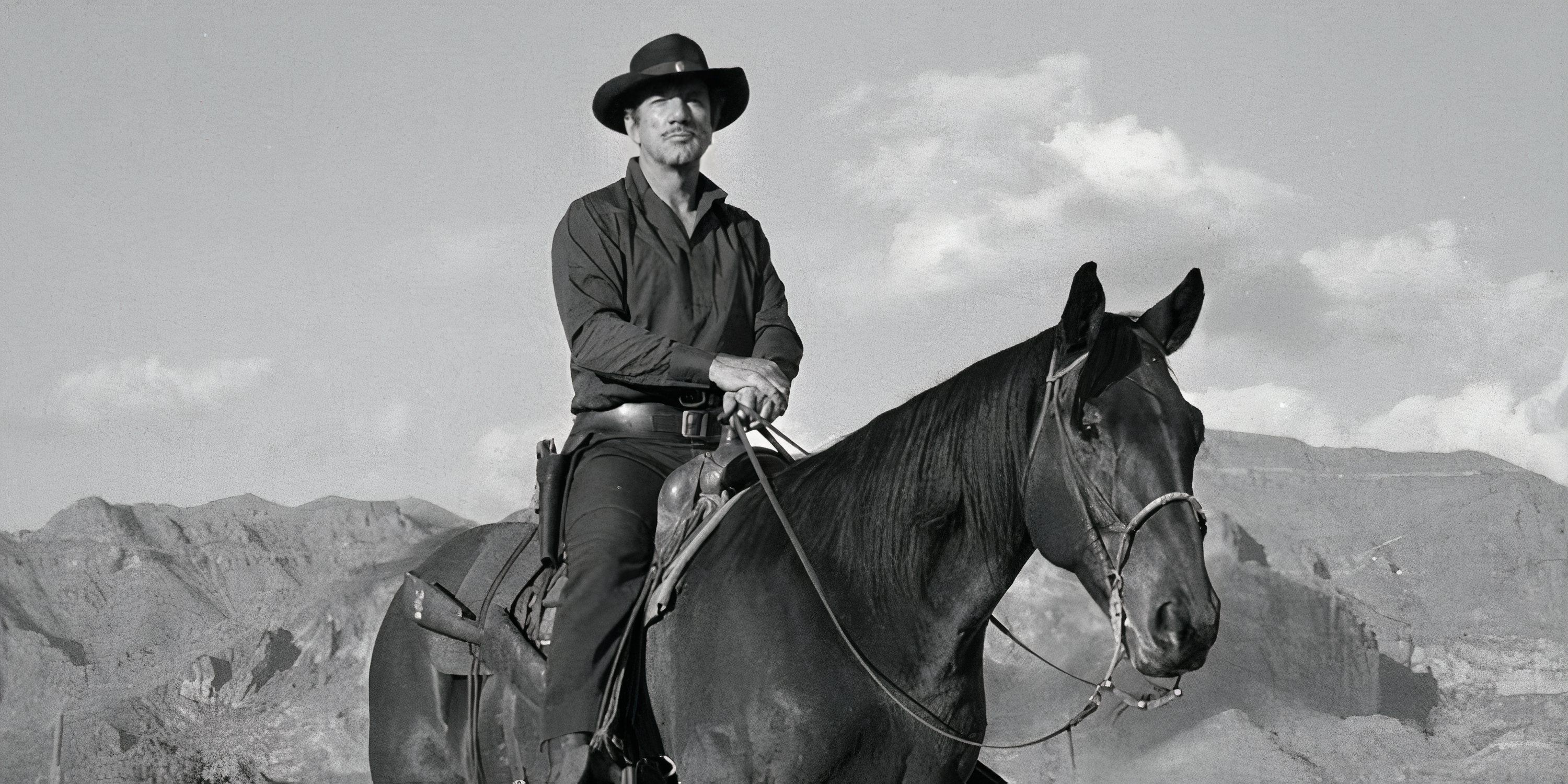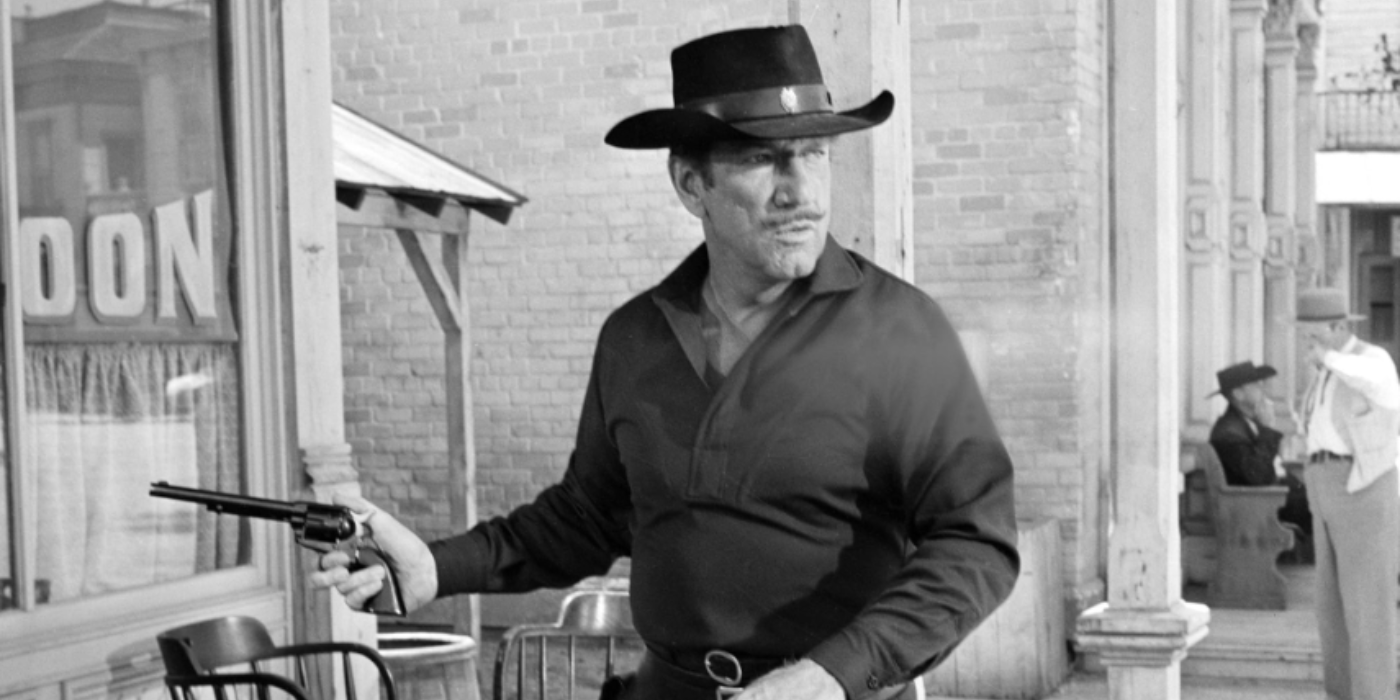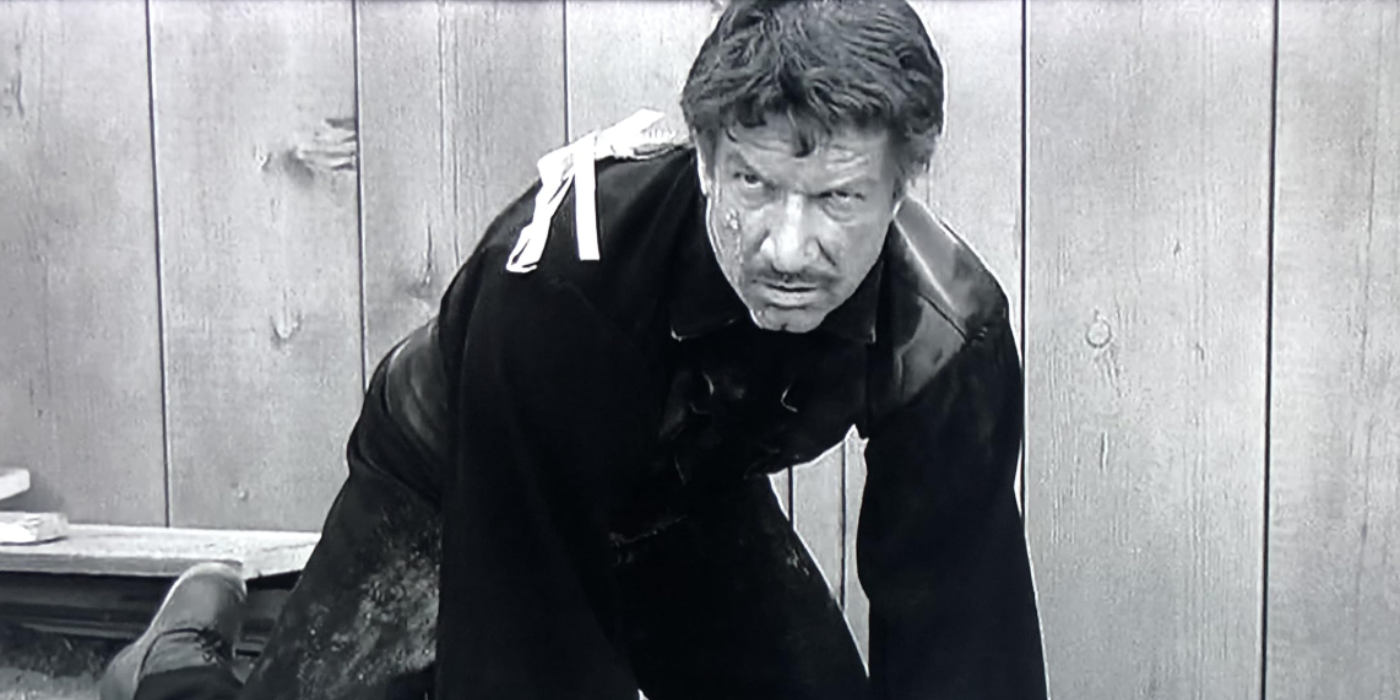
The classic television series “Have Gun – Will Travel,” which aired from 1957 to 1963, is often overlooked in discussions about influential shows, despite its significant role in shaping modern TV structure. Remarkably, this show was among the first to utilize the weekly case format, with each episode featuring a gunfighter resolving various issues faced by strangers across the Old West.
Apart from shaping Western TV, the series was instrumental in the development of one of the most renowned Sci-Fi series ever – Star Trek. Pioneered by Gene Roddenberry, the show served as a trial run for concepts and characters that would later become synonymous with Star Trek. For those who might have overlooked Have Gun – Will Travel, it’s an essential piece of television history that paved the way for shows like Columbo and The X Files, and it deserves the recognition it rightfully earned.
What is Have Gun – Will Travel About?



The series “Have Gun – Will Travel” centers around Paladin (Richard Boone), a skilled investigator and gunfighter who wanders the Old West. He offers his services as a mercenary to those in need, spending his days safeguarding innocence and righting wrongs. A man of refinement, Paladin is known for his cunning and expertise.
Is he ever prepared for the next adventure, whether it’s saving a kidnapped woman, avenging an old wrong, or confronting lawless outlaws? Equipped with his swift reflexes, he’s always ready. Spanning over six seasons, the television series “Have Gun – Will Travel” aired 225 episodes, each offering a unique, half-hour tale. If it was a common theme in Western narratives, you could probably find it played out on “Have Gun – Will Travel” at some point.
Have Gun – Will Travel was One of the First Episodic Westerns
1957 saw the debut of “Have Gun – Will Travel”, a time when television was still finding its footing. Westerns were in vogue, yet many of them were stuck between the traditions of radio and the emerging TV trends. What set “Have Gun – Will Travel” apart was its innovative approach to storytelling by being one of the pioneers to adopt episodic narratives – a format that would later dominate television for decades.
Before ‘Have Gun – Will Travel’ graced our screens, viewers had already been acquainted with shows like ‘The Lone Ranger’ and ‘The Adventures of Kit Carson’. However, these earlier series adhered to a simpler format reminiscent of Saturday matinee serials. In contrast, ‘Have Gun – Will Travel’ offered a more nuanced storyline that wasn’t confined to a single town or assignment. The protagonist, Paladin, moved from one job and situation to another, providing the show with the flexibility to delve into diverse settings and characters.
Following the conclusion of “Have Gun – Will Travel,” the era of episodic Westerns flourished. Shows like “Bonanza,” “The Virginian,” “Gunsmoke” (which initially followed a different structure but later adapted to standalone storytelling), and “Wagon Train” all adopted this format. This format, which would eventually become a standard for TV storytelling, not only dominated Westerns but also influenced shows such as “The Rockford Files,” “Columbo,” “The A-Team,” and “Law & Order.” These latter series can trace some of their narrative DNA back to this model.
Today, episodic television continues to dominate various genres such as procedurals, sitcoms, and animated shows. For instance, series like NCIS, Blue Bloods, Chicago P.D., and even the lesser-known Have Gun – Will Travel, follow a similar narrative formula – one case, one mission, and one neatly wrapped resolution per episode. Although Have Gun – Will Travel may not be as famous as other shows today, its impact on both the Western genre and the overall structure of modern television storytelling is substantial and should be recognized more often.
The show swiftly gained immense popularity, placing within the Top 5 television series during its debut season and establishing itself as the third most-viewed Western, following only Gunsmoke and Wagon Train. A significant factor in its success was likely the depiction of its main gunfighter. Unlike many others, Paladin had a unique backstory – he was a college graduate, well-versed in literature, and generally avoided excessive violence, despite his past involvement in the American Civil War. He also showed interest in interacting with diverse cultures and possessed an affinity for luxury items, explaining his high rates of pay.
Have Gun – Will Travel Influenced Star Trek
Besides shaping episodic narratives within the Western genre and beyond, it’s worth noting that the popular series “Have Gun – Will Travel” played an unexpected role in the genesis of Star Trek. Before embarking on his science fiction endeavors, Gene Roddenberry was a frequent writer for “Have Gun – Will Travel,” penning 24 episodes throughout its entire six-season run.
| Gene Roddenberry’s Most Notable Have Gun – Will Travel Episodes | ||
|---|---|---|
| Episode Title | Season | Episode Number |
| The Great Mojave Chase | 1 | 3 |
| The Hanging Cross | 1 | 15 |
| The Hanging of Roy Carter | 2 | 4 |
| The Posse | 3 | 4 |
| Charley Red Dog | 3 | 13 |
Roddenberry’s episodes frequently delved into ethical dilemmas, solutions, and motifs that transcended gunfights and confrontations. It’s not hard to imagine that the foundations of Star Trek can be traced back to his Have Gun work. Similarly to Captain Kirk, Paladin embodies a man of action yet one who ponders deeply; an individual who appreciates diplomacy as much as force. This is why Roddenberry often referred to Star Trek as “Wagon Train in space.” Essentially, he took the classic formula of the lone hero from Westerns and transported it to outer space.
Roddenberry utilized his time on Have Gun – Will Travel to delve into social issues that were typically shied away from during the 1950s TV era, often employing allegory as a subtle yet effective method for addressing sensitive topics due to the restrictive nature of television at that time. His episodes were recognized for minimizing violence and offering non-violent solutions to conflicts, and they also showcased Native American characters in a more humanized light compared to the stereotypical portrayals common in Western shows during the same period.
The qualities that shaped Roddenberry’s episodes in the series ‘Have Gun – Will Travel‘ were also reflected in his work on ‘Star Trek‘. In essence, both Paladin and Kirk shared a readiness to uphold peace. This was evident in their avoidance of excessive violence and their exploration of complex social issues. Roddenberry’s early work on ‘Have Gun – Will Travel‘ laid the groundwork for what would later evolve into one of the most impactful television series ever created.
Despite its significant achievements, Have Gun – Will Travel often goes unnoticed in conversations. The series demonstrated that television programming could be intelligent, organized, and profound without sacrificing its broad appeal, and its character-focused drama laid the foundation for modern TV storytelling. Yet, it seems fewer people discuss it. Perhaps this is due to it not fitting comfortably into the traditional image of a cowboy show, or perhaps because its most lasting impacts are felt in other genres. Regardless of your preference for Westerns or compelling narratives, this is a series worth revisiting.
Read More
- Clash Royale Best Boss Bandit Champion decks
- Vampire’s Fall 2 redeem codes and how to use them (June 2025)
- World Eternal Online promo codes and how to use them (September 2025)
- Best Arena 9 Decks in Clast Royale
- Mobile Legends January 2026 Leaks: Upcoming new skins, heroes, events and more
- Country star who vanished from the spotlight 25 years ago resurfaces with viral Jessie James Decker duet
- How to find the Roaming Oak Tree in Heartopia
- Solo Leveling Season 3 release date and details: “It may continue or it may not. Personally, I really hope that it does.”
- M7 Pass Event Guide: All you need to know
- Kingdoms of Desire turns the Three Kingdoms era into an idle RPG power fantasy, now globally available
2025-04-19 05:39